Home>diy>Building & Construction>What Do Construction Contractors Do
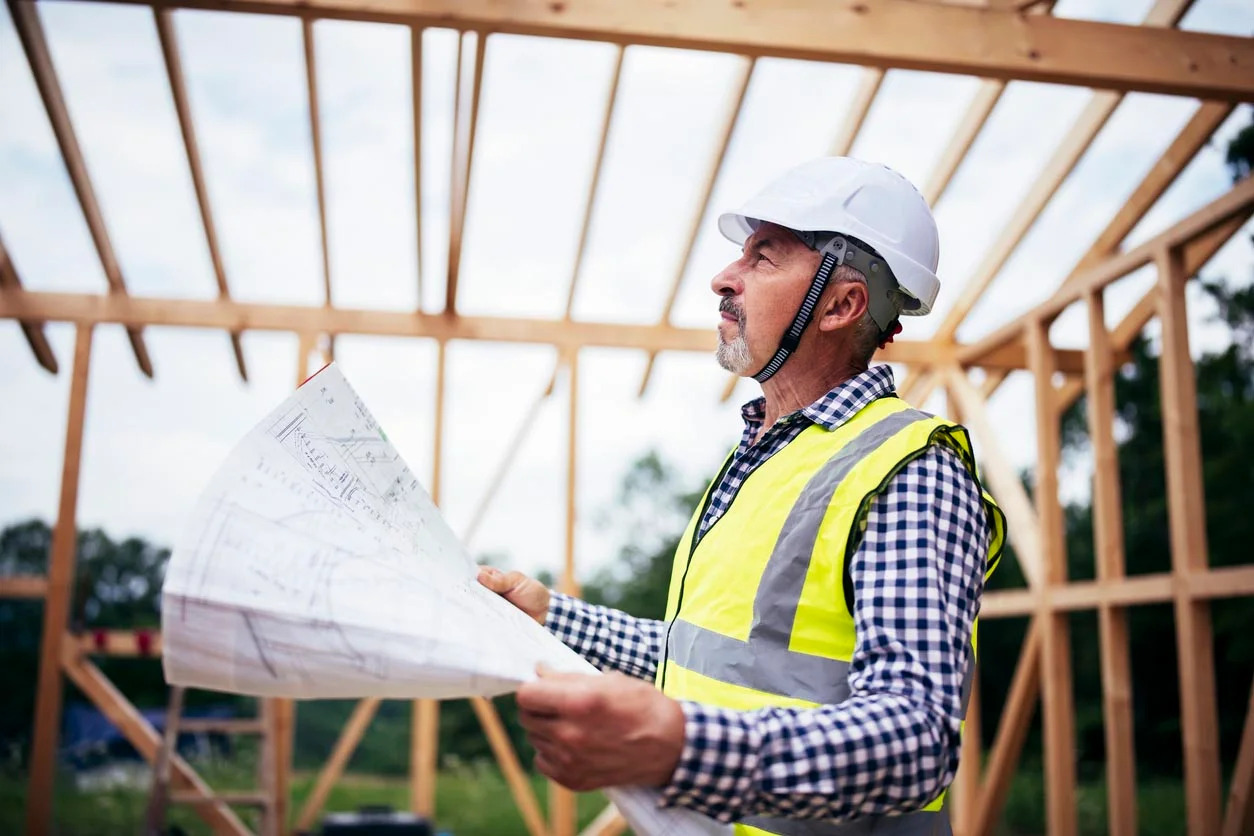

Building & Construction
What Do Construction Contractors Do
Modified: March 6, 2024
Construction contractors are professionals who oversee and manage building construction projects from start to finish. They handle everything from project planning and budgeting to hiring subcontractors and ensuring quality construction.
(Many of the links in this article redirect to a specific reviewed product. Your purchase of these products through affiliate links helps to generate commission for Storables.com, at no extra cost. Learn more)
Introduction
Construction contractors play a crucial role in the building industry, managing and overseeing various aspects of construction projects. From planning and budgeting to coordinating and supervising, these professionals ensure that construction projects are completed efficiently and successfully. Their expertise, experience, and knowledge of building construction are vital in delivering high-quality structures that meet the needs and specifications of clients.
Construction contractors are responsible for bringing the vision of architects and clients to life, turning ideas into reality. They work closely with stakeholders, including architects, engineers, subcontractors, and suppliers, to ensure seamless coordination and collaboration throughout the construction process. From small residential projects to large commercial ventures, construction contractors have the skills and expertise to manage projects of all sizes and complexities.
This article will delve into the responsibilities of construction contractors, the different phases of construction projects, the types of construction contractors, licensing and regulations, required skills and qualifications, challenges faced in the industry, and the future outlook for construction contractors.
Key Takeaways:
- Construction contractors manage all aspects of building projects, from planning to completion. They face challenges like budget constraints and labor shortages but have opportunities in technology and sustainability.
- The future looks bright for construction contractors as they adapt to trends like infrastructure investment and smart building integration. Their skills and expertise are crucial for the industry’s growth.
Responsibilities of Construction Contractors
Construction contractors have a wide range of responsibilities that encompass both the administrative and operational aspects of a construction project. Here are some of the key responsibilities that construction contractors typically handle:
- Project Planning: Construction contractors are responsible for developing a comprehensive project plan that outlines the scope, schedule, and budget of the construction project. They analyze the project requirements, identify potential risks, and create strategies to mitigate them. Through careful planning, contractors ensure that projects are completed efficiently and within the allocated resources.
- Coordination and Communication: Construction contractors act as a central point of contact, facilitating effective communication and coordination between the different stakeholders involved in the project. They collaborate with architects, engineers, subcontractors, and suppliers to ensure that everyone is on the same page and working towards the project’s objectives.
- Procurement and Supply Chain Management: Construction contractors are responsible for procuring the necessary materials, equipment, and services required for the construction project. They identify reliable suppliers, negotiate contracts, and monitor the delivery of materials to the construction site. Effective supply chain management is crucial to ensure that construction projects stay on schedule.
- Budgeting and Cost Control: Construction contractors are tasked with developing and managing the project budget. They estimate the costs of labor, materials, and equipment, and monitor expenses throughout the project’s duration. Contractors must implement cost control measures to ensure that the project remains within the allocated budget.
- Human Resource Management: Construction contractors oversee the hiring, training, and supervision of the project’s workforce. They ensure that the right personnel with the required skills and certifications are assigned to the appropriate tasks. Contractors also prioritize workplace safety and ensure compliance with health and safety regulations.
- Quality Control and Assurance: Construction contractors are responsible for maintaining high-quality standards throughout the construction process. They implement quality control measures, conduct regular inspections, and address any issues that may affect the quality of the final structure. Contractors also ensure compliance with building codes and regulations.
These are just a few of the many responsibilities that construction contractors handle during a construction project. Their ability to effectively manage these responsibilities is crucial in delivering successful projects that meet client expectations and industry standards.
Pre-construction Phase
The pre-construction phase is a crucial part of any construction project and sets the foundation for a successful outcome. During this phase, construction contractors focus on planning and preparation to ensure that the project is well-organized and ready for implementation. The following are key activities that typically take place during the pre-construction phase:
- Project Assessment: Construction contractors thoroughly assess the project’s feasibility and viability. This includes evaluating site conditions, conducting soil tests, and identifying any potential challenges that may arise during construction. Contractors collaborate with architects and engineers to review the project’s design and make necessary adjustments or suggestions.
- Budgeting and Cost Estimation: Contractors meticulously analyze the project’s scope and specifications to develop a comprehensive budget and cost estimation. They factor in various elements such as labor costs, material expenses, equipment rentals, and any additional costs that may arise during construction.
- Permits and Approvals: Construction contractors are responsible for obtaining the necessary permits and approvals from local authorities and regulatory bodies. This includes securing building permits, environmental clearances, and other required certifications to ensure compliance with regulations.
- Subcontractor Selection: If subcontractors are required for the project, construction contractors carefully select and evaluate potential subcontractors based on their expertise, track record, and capabilities. They analyze subcontractor bids and proposals, negotiate contracts, and establish clear expectations and timelines.
- Procurement and Material Sourcing: Contractors identify and source the required materials and equipment for the construction project. They collaborate with suppliers, obtain quotes, and negotiate contracts to ensure timely delivery of materials and equipment to the construction site.
- Construction Scheduling: Construction contractors develop a detailed construction schedule that outlines the timeline, milestones, and key deliverables for the project. They consider factors such as weather conditions, availability of resources, and potential risks in creating an efficient and realistic schedule.
- Contract Documentation: Construction contractors prepare and review all project-related contracts and agreements. This includes contracts with subcontractors, suppliers, and other relevant parties. They ensure that all parties involved are aligned on the project scope, responsibilities, and contractual terms.
The pre-construction phase sets the stage for the actual construction and plays a critical role in the overall success of the project. Effective planning, budgeting, and coordination during this phase lay the groundwork for a smooth and efficient construction process.
Construction Phase
The construction phase is the heart of any building project, where the plans and preparations from the pre-construction phase come to life. During this phase, construction contractors and their team work diligently to execute the construction plan and bring the project to completion. Here are the key activities that take place during the construction phase:
- Site Preparation: Before construction activities can commence, construction contractors ensure that the construction site is properly prepared. This includes clearing the site, setting up temporary facilities like offices and storage areas, and establishing safety measures.
- Foundation and Structural Work: Construction contractors oversee the construction of the foundation and structural elements of the building. This involves excavation, pouring concrete, laying the foundation, and erecting the framework of the structure. Contractors work closely with engineers to ensure that the construction meets the required standards and specifications.
- Building Systems Installation: Contractors are responsible for coordinating the installation of essential building systems, such as plumbing, electrical, heating, ventilation, and air conditioning (HVAC) systems. They work with specialized subcontractors who have expertise in these areas to ensure proper installation and functionality.
- Interior and Exterior Finishing: Construction contractors oversee the installation of finishing elements, both on the interior and exterior of the building. This includes drywall installation, flooring, painting, roofing, and exterior cladding. Contractors ensure that the finishes are of high quality and meet the design and aesthetic requirements specified in the project plan.
- Quality Control and Inspections: Throughout the construction phase, contractors continuously monitor and inspect the quality of workmanship and materials. They conduct regular quality control checks to ensure that construction is in compliance with building codes and industry standards.
- Project Management: Construction contractors manage the day-to-day operations of the construction site, coordinating tasks, supervising the workforce, and ensuring that the project stays on schedule. They monitor progress, resolve any issues that arise, and maintain effective communication with all stakeholders.
- Safety and Risk Management: Contractors prioritize safety on the construction site, implementing safety procedures and protocols to protect the workforce and mitigate risks. They conduct regular safety inspections, provide training to workers, and ensure compliance with safety regulations.
- Record Keeping and Documentation: Construction contractors maintain detailed records and documentation throughout the construction phase. This includes recording progress, changes to the project scope, and any issues or challenges encountered. They also manage documentation related to permits, inspections, and subcontractor agreements.
The construction phase requires effective project management, attention to detail, and strong coordination skills. Construction contractors oversee the entire process, ensuring that construction activities progress smoothly and that the project is completed on time and within budget.
Post-construction Phase
The post-construction phase marks the final stage of a construction project and involves several important tasks that need to be completed after the construction work is finished. This phase focuses on wrapping up the project, addressing any remaining tasks, and ensuring a smooth transition to the building’s occupants or owners. Here are the key activities that take place during the post-construction phase:
- Final Inspections: Construction contractors arrange for a final inspection of the building to ensure that it meets all the necessary codes, regulations, and quality standards. This inspection verifies that all systems, structural elements, and finishes are in place and functioning correctly.
- Punch Lists and Deficiencies: If any deficiencies or incomplete tasks are identified during the final inspection, construction contractors compile a punch list outlining the remaining items that need to be addressed. They work with subcontractors and the project team to resolve these issues promptly.
- Documentation and Closeout: Contractors compile and organize all project-related documentation, including permits, warranties, maintenance manuals, and as-built drawings. This documentation is handed over to the building owners or occupants for future reference and maintenance purposes.
- Training and Handover: Construction contractors provide necessary training to the building owners or occupants on the operation and maintenance of systems and equipment within the building. They ensure a smooth transition, addressing any questions or concerns during the handover process.
- Warranty and Maintenance: Contractors ensure that all warranties for materials, equipment, and workmanship are transferred to the building owners or occupants. They also provide guidance on ongoing maintenance requirements and recommend maintenance schedules to maximize the longevity of the structure.
- Financial Closeout: Construction contractors finalize all financial aspects of the project, including the settlement of outstanding payments to subcontractors, suppliers, and other project-related expenses. They ensure that all financial records are accurate and complete.
- Post-Construction Evaluation: Contractors may conduct a post-construction evaluation to assess the project’s overall success, identify lessons learned, and gather feedback from the stakeholders involved. This evaluation helps improve future projects and strengthens the contractor’s reputation.
- Client Satisfaction: Construction contractors strive to ensure client satisfaction during the post-construction phase. They address any post-construction concerns promptly and maintain good communication with the building owners or occupants to foster a positive working relationship.
The post-construction phase is essential for tying up loose ends, ensuring the successful completion of the project, and leaving the building owners with a fully functional and well-documented structure. Construction contractors play a crucial role in this phase, ensuring a seamless handover and satisfying the needs of their clients.
Read more: What Is A Renovation Contractor
Types of Construction Contractors
The construction industry encompasses a wide range of projects, each requiring specialized knowledge and skills. As a result, there are various types of construction contractors who specialize in different areas of construction. Here are some of the common types of construction contractors:
- General Contractors: General contractors oversee the entire construction project, from start to finish. They are responsible for managing all aspects of the project, including coordinating subcontractors, procuring materials, and ensuring the project stays on schedule and within budget.
- Residential Contractors: Residential contractors specialize in residential construction projects, such as single-family homes, townhouses, condos, and apartment buildings. They have expertise in working with residential clients and understand the unique considerations involved in residential construction.
- Commercial Contractors: Commercial contractors focus on commercial construction projects, including office buildings, retail spaces, hotels, and industrial facilities. They have experience in managing large-scale projects and understand the specific needs of commercial clients.
- Industrial Contractors: Industrial contractors specialize in industrial construction projects, such as factories, warehouses, power plants, and manufacturing facilities. They have expertise in managing complex projects that require specialized equipment and comply with strict safety and regulatory standards.
- Civil Contractors: Civil contractors are involved in infrastructure construction projects, including roads, bridges, dams, airports, and water treatment plants. They have a deep understanding of civil engineering principles and are skilled in managing large-scale infrastructure projects.
- Electrical Contractors: Electrical contractors specialize in the installation, repair, and maintenance of electrical systems in buildings. They are licensed professionals with expertise in wiring, lighting, power distribution, and safety regulations.
- Plumbing Contractors: Plumbing contractors handle the installation, repair, and maintenance of plumbing systems in buildings. They are knowledgeable about piping systems, fixtures, drainage, and water supply, and ensure compliance with plumbing codes and regulations.
- HVAC Contractors: HVAC (Heating, Ventilation, and Air Conditioning) contractors are responsible for the installation, repair, and maintenance of HVAC systems in buildings. They have expertise in climate control systems, ventilation, and energy efficiency.
- Specialty Contractors: Specialty contractors focus on specific trades or specialized areas within the construction industry. This can include flooring contractors, roofing contractors, painting contractors, landscaping contractors, and more. They provide specialized services that complement the overall construction project.
These are just a few examples of the types of construction contractors that exist in the industry. However, there is often overlap between different types, and contractors may have expertise in multiple areas. The choice of contractor depends on the specific needs of the project and the expertise required to successfully complete it.
Construction contractors oversee and manage construction projects, including planning, budgeting, scheduling, and hiring subcontractors. They ensure that the project is completed on time, within budget, and meets quality standards.
Licensing and Regulations
Licensing and regulations play a vital role in the construction industry, ensuring that construction contractors meet certain standards and qualifications to perform their work safely and professionally. These regulations vary depending on the country, state, or local jurisdiction, but there are common requirements that construction contractors must adhere to. Here are some aspects of licensing and regulations in the construction industry:
- Contractor’s License: Most jurisdictions require construction contractors to obtain a contractor’s license before they can legally operate. This license demonstrates that the contractor has the necessary qualifications, experience, and knowledge to perform construction work.
- Licensing Boards and Authorities: Licensing boards or authorities oversee the licensing process and ensure that contractors meet the required standards. They may conduct examinations, review applications, and issue licenses based on specified criteria.
- Trade-specific Certifications: In addition to a contractor’s license, certain trades within the construction industry may require specific certifications. For example, electrical contractors may need an electrical license, and plumbing contractors may need a plumbing license. These certifications ensure that contractors have the expertise to handle specialized tasks.
- Insurance Requirements: Construction contractors are typically required to have insurance coverage, such as general liability insurance and workers’ compensation insurance. This protects both contractors and clients in the event of accidents, property damage, or injuries that may occur during the construction process.
- Building Codes and Regulations: Construction contractors must comply with building codes and regulations that dictate the standards for construction methods, materials, safety, and structural integrity. These codes are in place to protect public health and safety and ensure that buildings meet specific quality standards.
- Environmental Regulations: Construction projects are subject to various environmental regulations to minimize their impact on the environment. Contractors may need to comply with regulations related to waste management, erosion control, air quality, and water conservation.
- Permitting: Construction contractors are responsible for obtaining the necessary permits from local authorities before starting construction work. Permits ensure that the project complies with zoning regulations, building codes, and other municipal requirements.
- Occupational Safety and Health: Construction contractors are required to comply with occupational safety and health regulations to protect workers from hazards and mitigate risks. This includes providing proper safety training, personal protective equipment, and implementing safety protocols on construction sites.
- Continuing Education: Some jurisdictions require construction contractors to participate in continuing education programs to stay updated on the latest industry trends, regulations, and best practices. This ensures that contractors are knowledgeable about the latest advancements in construction techniques and safety standards.
It’s important for construction contractors to stay informed about the licensing and regulatory requirements in their specific areas of operation. Non-compliance with these regulations can result in penalties, legal issues, and damage to the contractor’s reputation. By adhering to licensing and regulation standards, construction contractors can provide quality services while maintaining professionalism and integrity in the industry.
Skills and Qualifications
Construction contractors require a diverse set of skills and qualifications to effectively manage and oversee construction projects. Here are some key skills and qualifications that are important for success in the construction industry:
- Construction Knowledge: A deep understanding of construction principles, techniques, materials, and processes is essential for a construction contractor. This knowledge allows them to make informed decisions, troubleshoot issues, and ensure that construction work is completed to the highest standards.
- Project Management: Strong project management skills are crucial for construction contractors. They need to be able to plan, organize, and execute construction projects efficiently, balancing resources, schedules, and budgets. Effective communication, problem-solving, and decision-making skills are key to successful project management.
- Leadership and Team Management: Contractors must have the ability to lead and manage a diverse workforce. They need to inspire and motivate their team, delegate tasks, and ensure that everyone is working towards the project’s goals. Strong leadership skills help create a positive work environment and promote collaboration.
- Financial Literacy: Construction contractors need a solid understanding of financial management, including budgeting, cost estimation, and financial analysis. They should be adept at creating and managing budgets, tracking expenses, and making strategic financial decisions to ensure profitability and project success.
- Negotiation and Contract Management: Contractors often need to negotiate contracts with subcontractors, suppliers, and other stakeholders. Strong negotiation skills are essential for obtaining favorable terms and ensuring that all parties involved are aligned with the project’s objectives. Contract management skills are also necessary to accurately interpret and enforce contractual obligations.
- Problem Solving and Decision Making: Construction projects often present unexpected challenges and constraints. Contractors must be adept at analyzing problems, identifying solutions, and making sound decisions under pressure. They need to assess risks and develop contingency plans to mitigate potential issues.
- Communication Skills: Effective communication is vital in the construction industry. Contractors must be able to clearly convey information, instructions, and expectations to various stakeholders, including architects, engineers, clients, subcontractors, and regulatory authorities. Strong interpersonal skills help foster productive relationships and ensure smooth collaboration.
- Regulatory and Safety Compliance: Construction contractors must have a thorough understanding of building codes, regulations, and safety standards. They need to ensure that their construction projects comply with these requirements in order to protect the health and safety of workers and the public.
- Continuous Learning: The construction industry is constantly evolving, with new technologies, materials, and best practices emerging. Contractors should have a willingness to adapt and continuously learn to stay updated on industry trends and advancements.
- Business and Marketing Skills: Construction contractors often run their own businesses and need basic knowledge of business management, marketing, and client relationship management. These skills help them attract clients, manage finances, and grow their construction business.
Developing and honing these skills is essential for construction contractors to successfully navigate the complexities of the construction industry. Continuous improvement in these areas can lead to greater project success, client satisfaction, and professional growth.
Challenges Faced by Construction Contractors
Construction contractors operate in a challenging and dynamic industry that presents various obstacles and complexities. Here are some of the key challenges that construction contractors often face:
- Project Delays: Construction projects are subject to numerous factors that can cause delays, such as inclement weather, supply chain disruptions, permit issues, and unforeseen site conditions. Contractors must carefully manage schedules and adjust plans to minimize delays and keep projects on track.
- Budget Constraints: Staying within budget can be a major challenge in construction projects. Unforeseen expenses, price fluctuations in materials, and changes in project scope can impact the budget. Contractors must implement effective cost control measures, closely monitor expenditures, and adapt plans to ensure financial viability.
- Labor Shortages: The construction industry often experiences a shortage of skilled labor, which can hamper project timelines and increase labor costs. Contractors must attract and retain skilled workers, provide adequate training, and implement strategies to mitigate the impact of labor shortages.
- Safety and Risk Management: Construction sites are inherently risky environments, and ensuring safety is a constant challenge. Contractors must prioritize safety protocols and provide appropriate training to protect workers and mitigate the risk of accidents. Compliance with safety regulations is essential to avoid legal issues and maintain a positive reputation.
- Regulatory Compliance: Navigating the complex landscape of regulatory requirements, permits, and building codes can be challenging. Contractors must stay updated on changes in regulations, obtain necessary permits, and ensure that their projects comply with all applicable codes and standards.
- Client Expectations: Meeting client expectations can be demanding, as clients often have specific requirements and high expectations for quality, cost, and schedule. Contractors must effectively communicate with clients, manage expectations, and ensure that the delivered project aligns with the client’s vision.
- Competition: The construction industry is highly competitive, with many contractors vying for the same projects. Contractors must differentiate themselves by offering superior quality, value, and client service to secure projects and maintain a strong reputation in the market.
- Technology Adoption: Embracing technology can enhance efficiency and productivity in construction projects, but integrating new technologies can present challenges. Contractors must evaluate and implement relevant technologies, train their workforce, and overcome resistance to change to fully realize the benefits of technological advancements.
- Sustainability and Environmental Concerns: There is a growing emphasis on sustainable construction practices and reducing the environmental impact of projects. Contractors must stay updated on green building practices, incorporate sustainable design elements, and address environmental concerns to meet the evolving expectations of clients and regulatory bodies.
- Contractual Disputes: Contractual disputes can arise during construction projects, leading to delays, cost overruns, and strained relationships with clients and subcontractors. Contractors must carefully review and negotiate contracts, maintain clear communication, and have mechanisms in place to address and resolve disputes professionally.
Overcoming these challenges requires proactive planning, effective communication, adaptability, and a strong commitment to quality and professionalism. Construction contractors who can effectively navigate these obstacles are well-positioned for success in the ever-evolving construction industry.
Read more: What Is A HVAC Contractor
Future Outlook for Construction Contractors
The future outlook for construction contractors is promising, with several trends and factors shaping the industry. Here are some key aspects that indicate a positive future for construction contractors:
- Infrastructure Investment: Many countries are focusing on infrastructure development and investing in large-scale projects such as transportation systems, energy facilities, and public buildings. This presents significant opportunities for construction contractors to secure projects and contribute to the growth of the construction industry.
- Renewable Energy and Sustainability: The increasing global emphasis on renewable energy and sustainability is driving the demand for green building construction. Construction contractors with expertise in sustainable practices, energy-efficient design, and eco-friendly technologies are well-positioned to capitalize on this growing sector.
- Advancements in Technology: Technology is revolutionizing the construction industry, improving efficiency, productivity, and safety. Construction contractors who embrace and integrate technology, such as building information modeling (BIM), drones, and virtual reality, can gain a competitive edge and deliver projects more effectively.
- Prefabrication and Modular Construction: Off-site construction methods, including prefabrication and modular construction, are gaining popularity due to their ability to reduce construction time, enhance quality control, and minimize waste. Construction contractors who adopt and specialize in these innovative methods can streamline their processes and meet the demand for faster project delivery.
- Aging Infrastructure and Retrofitting: Many existing structures require renovation, retrofitting, and maintenance to meet updated building codes and enhance sustainability. Construction contractors specializing in retrofit projects have a growing market for upgrading infrastructure, improving energy efficiency, and extending the lifespan of buildings.
- Skilled Labor Shortage: While the industry faces a shortage of skilled labor, this presents an opportunity for construction contractors to invest in training and development programs. Contractors who prioritize recruiting, retaining, and upskilling their workforce can gain a competitive advantage and deliver high-quality projects.
- Collaboration and Integrated Delivery: The construction industry is shifting towards more collaborative and integrated project delivery methods. Construction contractors who can effectively collaborate with architects, engineers, subcontractors, and other stakeholders using tools like integrated project delivery (IPD) and lean construction techniques will be well-positioned for success.
- Smart Buildings and IoT Integration: The rise of smart buildings and the integration of Internet of Things (IoT) technology present new opportunities for construction contractors. Contractors who can incorporate smart technology, automation, and data analytics into construction projects can offer enhanced functionality, efficiency, and comfort to building owners and occupants.
- Regulatory Focus on Safety and Sustainability: Governments and regulatory bodies are placing greater emphasis on safety standards and sustainable construction practices. Construction contractors who adapt to and comply with these evolving regulations will have a competitive advantage and be more attractive to clients who prioritize safety and sustainability.
- Global Economic Growth: The overall global economic growth and population increase contribute to the demand for new infrastructure, commercial buildings, and housing. Construction contractors who can navigate international markets and adapt to varying cultural and regulatory contexts will find ample opportunities for growth and expansion.
While the construction industry experiences its share of challenges, the future outlook for construction contractors is positive. By embracing technology, sustainability, collaboration, and innovation, construction contractors can capitalize on the opportunities presented by these emerging trends to thrive in the evolving construction landscape.
Conclusion
Construction contractors play a crucial role in the building industry, managing and overseeing construction projects from start to finish. They possess a diverse range of skills and qualifications that enable them to successfully navigate the complexities of the construction process. Throughout the pre-construction, construction, and post-construction phases, contractors handle responsibilities such as project planning, coordination, budgeting, and quality control.
However, construction contractors face numerous challenges in their line of work. These challenges include project delays, budget constraints, labor shortages, and regulatory compliance. Despite these obstacles, the future outlook for construction contractors holds various opportunities. Infrastructure investments, technological advancements, sustainable construction practices, and the demand for retrofitting and renovation present avenues for contractors to grow and innovate in the industry. Collaboration, smart building integration, and a focus on safety and sustainability will also shape the future of the industry.
In conclusion, construction contractors are critical in translating architectural designs into tangible structures. Their expertise, project management skills, and ability to adapt to evolving trends and regulations make them essential players in the construction industry. By embracing new technologies, prioritizing safety and sustainability, and continuously honing their skills, construction contractors can thrive in an industry that is poised for growth and transformation.
Frequently Asked Questions about What Do Construction Contractors Do
Was this page helpful?
At Storables.com, we guarantee accurate and reliable information. Our content, validated by Expert Board Contributors, is crafted following stringent Editorial Policies. We're committed to providing you with well-researched, expert-backed insights for all your informational needs.
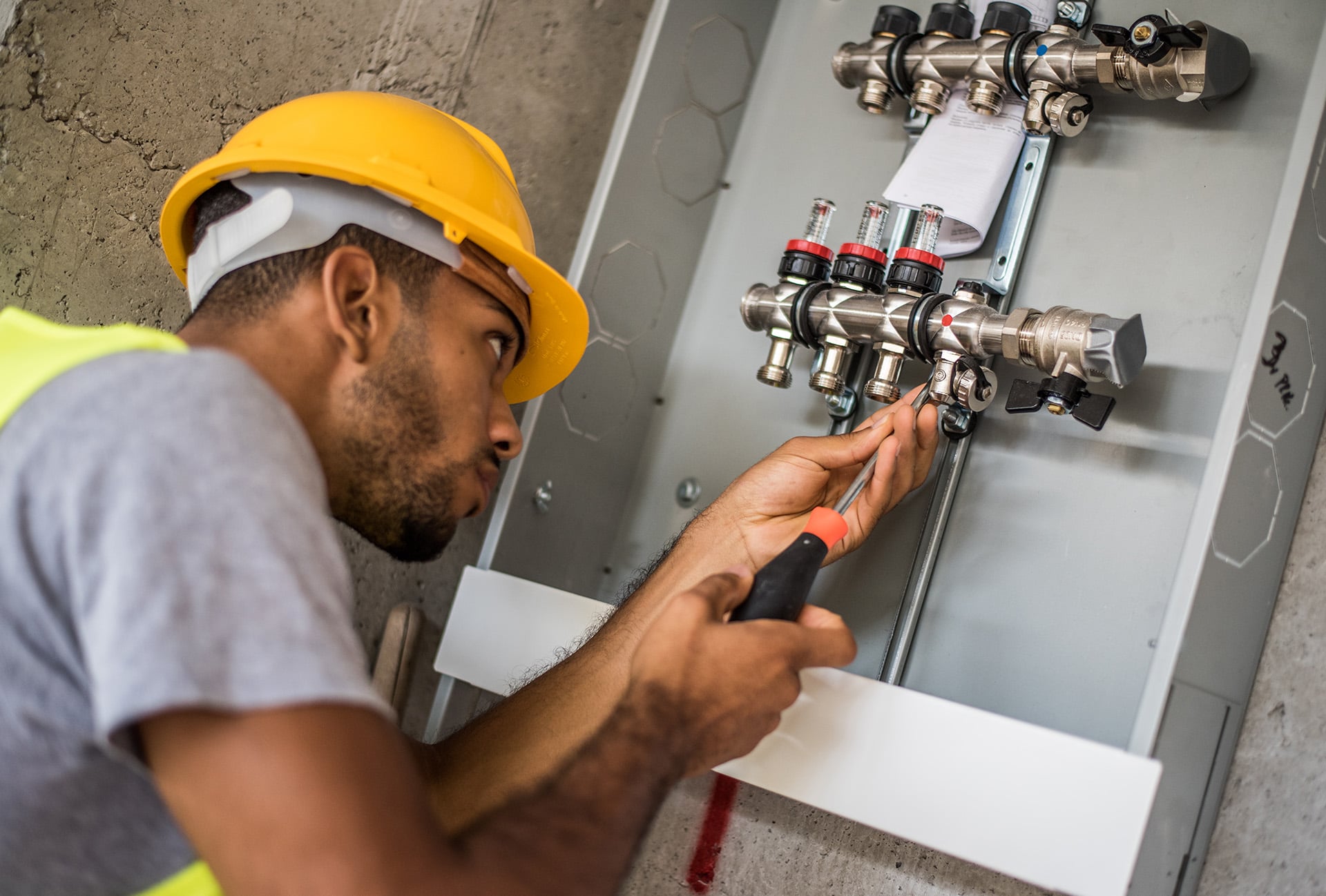

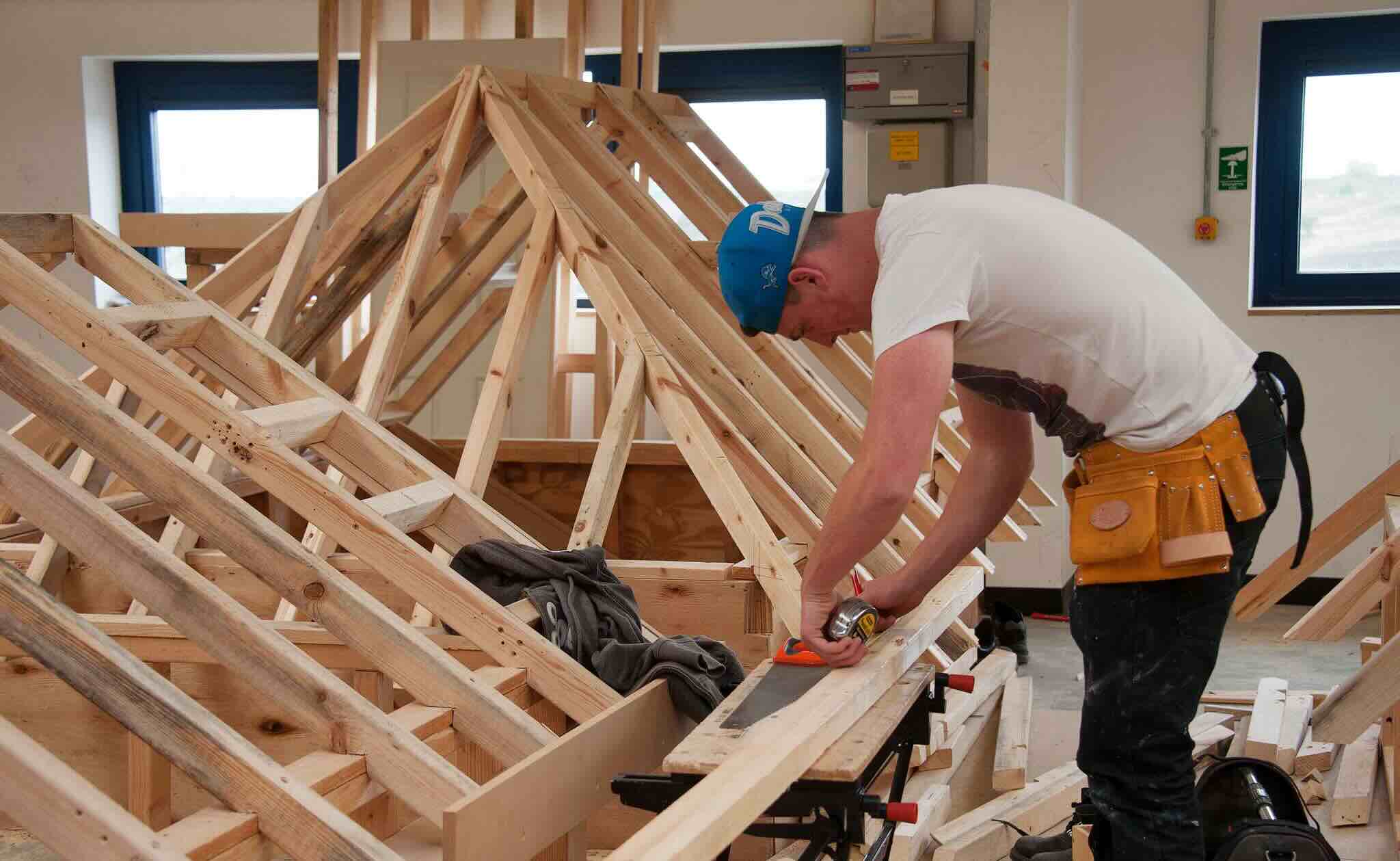

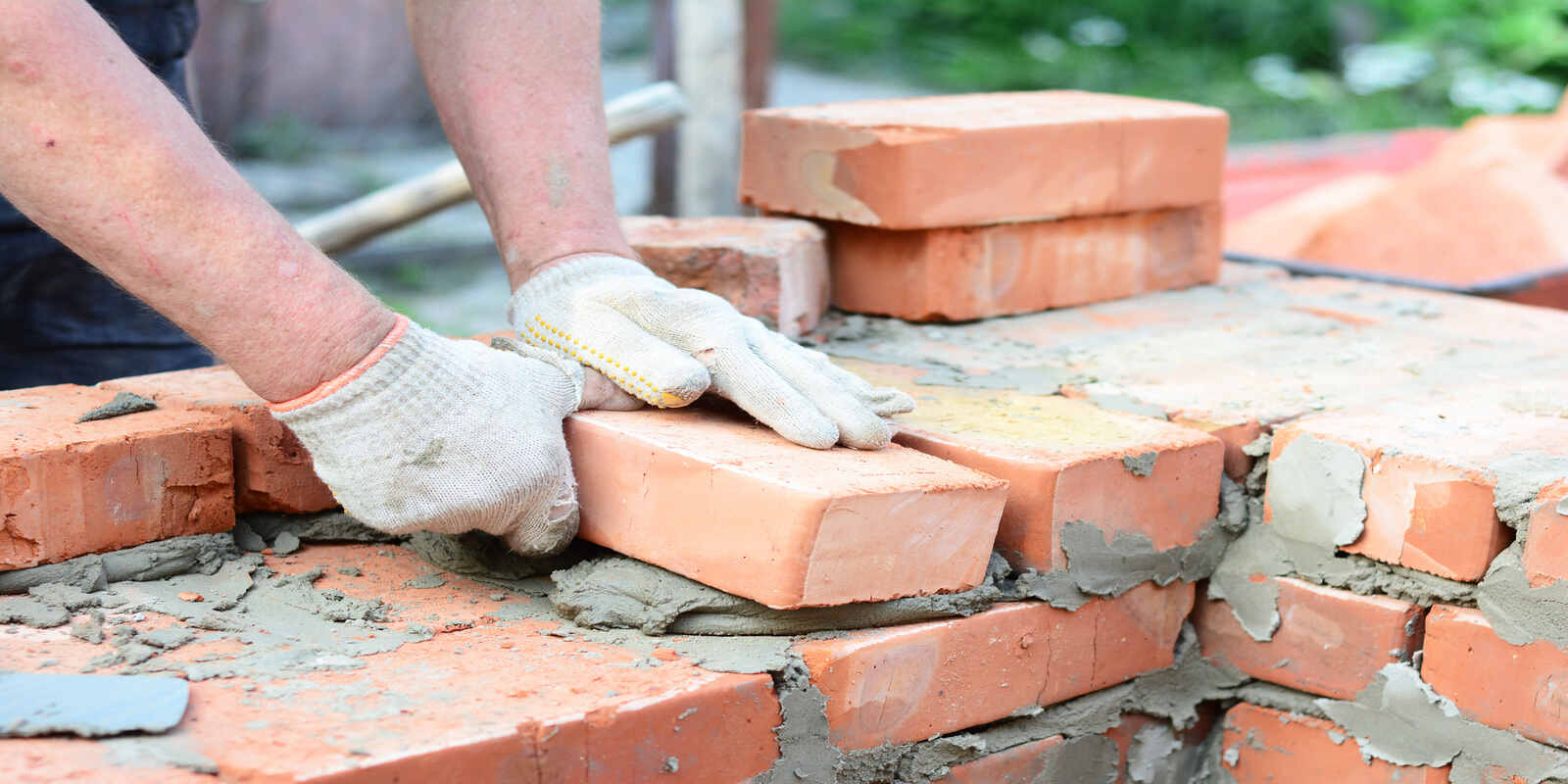
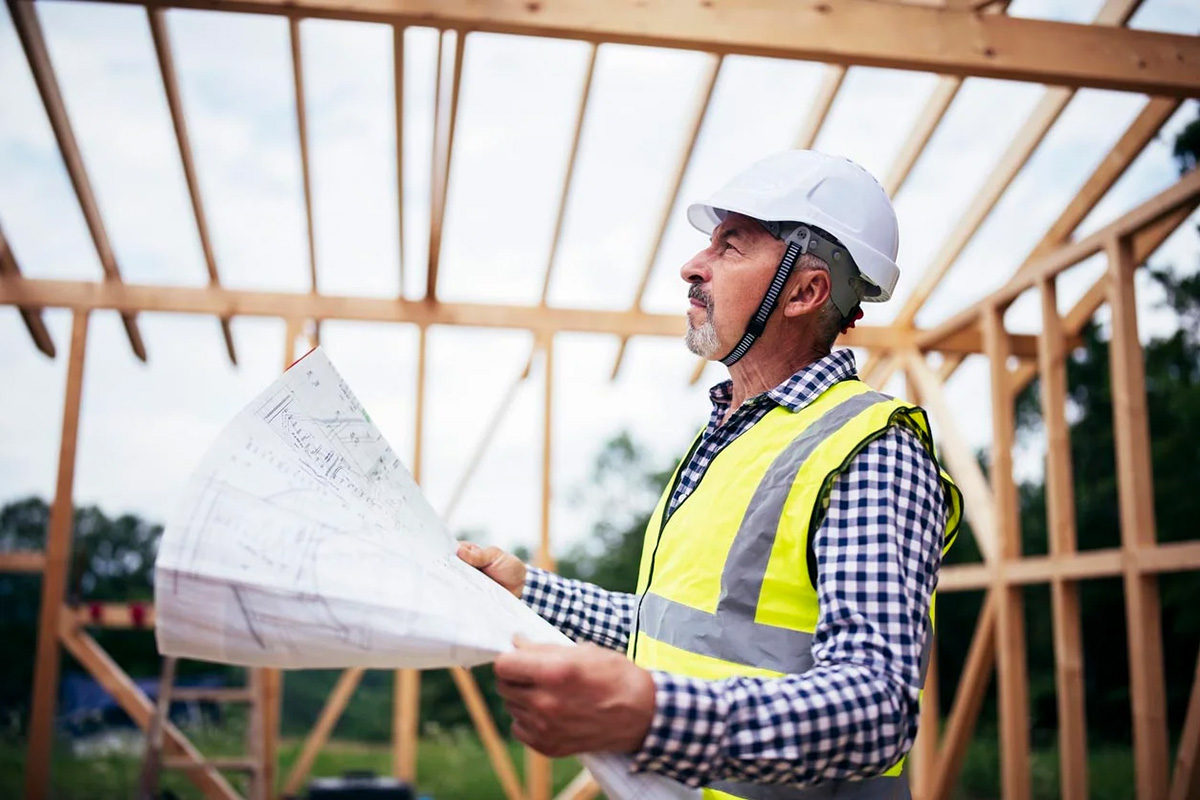

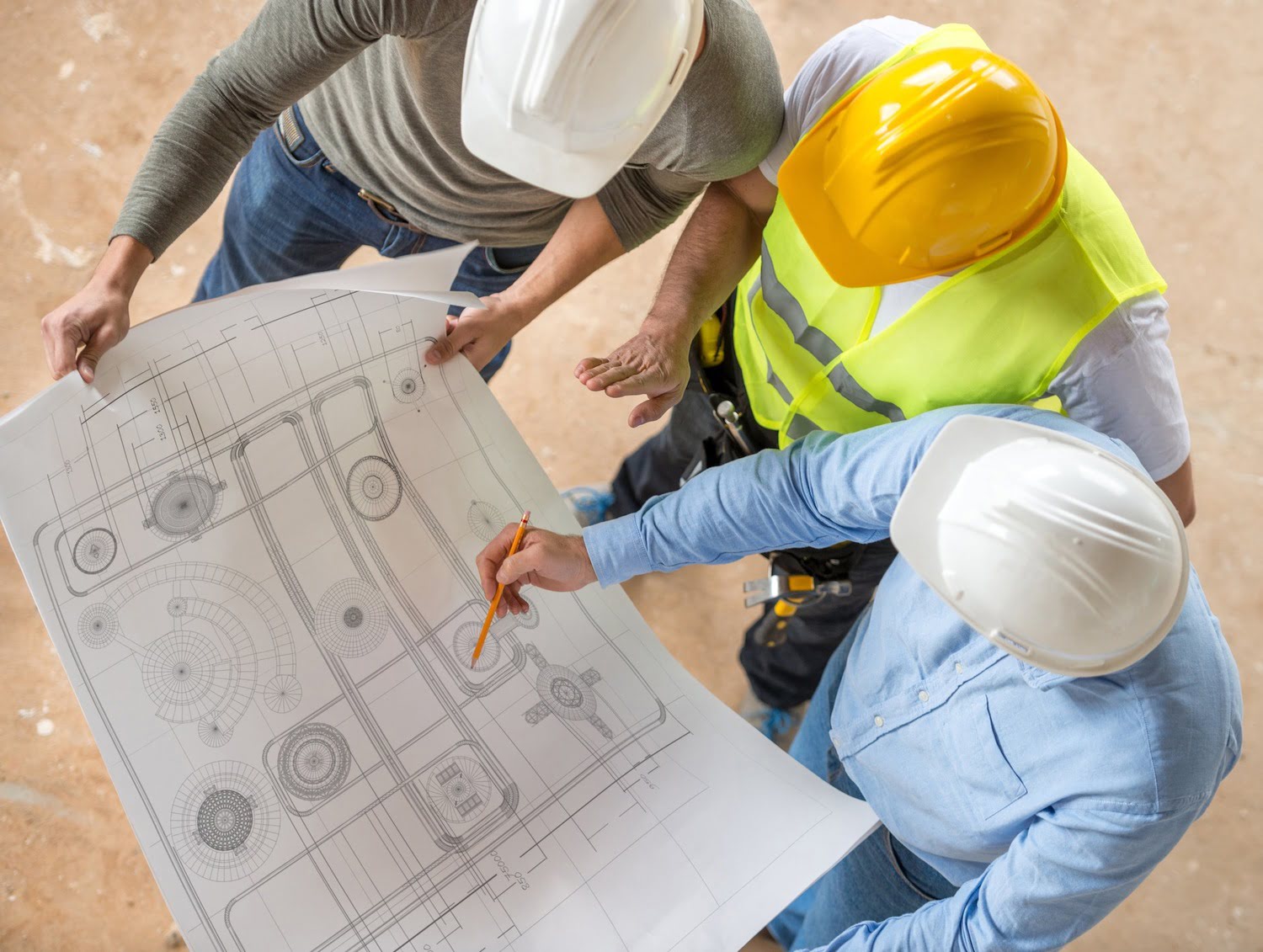






0 thoughts on “What Do Construction Contractors Do”